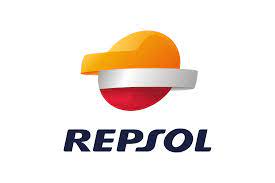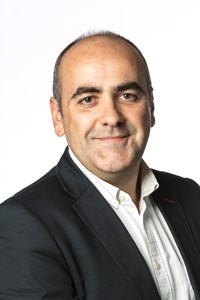People, alongside technology, are the key factor helping Repsol achieve its transition to being a low-carbon energy provider.
Repsol was the first company in the oil and gas sector to set itself the challenge of becoming a net-zero emissions company by 2050, with interim targets set for 2025, 2030 and 2040.
“The transition is a very complex work,” said Enrique Fernandez Puertas, head of talent and culture at Repsol. “We are very much going to be reliant on a talented group of people that are passionate about shaping the future of energy.”
Active in 29 countries with a team of more than 24,000 people worldwide, Repsol is an international company with a broad portfolio of both traditional and new energy divisions. Between 2021 and 2025, one third of the company’s €5b ($5.5b) annual capex will go to low carbon businesses, including renewable power and renewable fuels. Repsol's traditional upstream business is also boosting CCS, geothermal energy and the decarbonisation of operations.
Of the upstream fossil fuel capital expenditure, a significant amount of investment will go into reducing methane emissions—with a target to reduce the intensity of these emissions by 85% in 2025 compared with 2017.
To tackle the issue, Repsol has joined forces with other like-minded industry groups, including the Oil & Gas Climate Initiative, the World Bank Zero Routine Flaring Initiative and the Methane Guiding Principles.
“We are using our traditional strengths to help shape the future of the company,” said Fernandez Puertas. “Innovation, which has always been in the DNA of Repsol, is now being used to prevent and mitigate methane leaks in our upstream assets.”
The firm is implementing new, more precise technologies for emissions detection, quantification and reduction. It is also focusing its activity on less emissions-intensive assets and improving the energy efficiency of its operations to help reduce Scope One emissions.
“This idea of integrating our sustainability commitments into our core principles and putting energy efficiency front and centre is very much informing how we operate our assets right now,” said Fernandez Puertas.
The US is a particular point of focus for Repsol’s upstream division—with the firm allocating more than half of its global upstream organic capex in 2023 to the region.
New energies
But it is not just in its traditional upstream business that Repsol will need to deploy the talent of its workforce to reduce emissions. These skills will also be necessary in the firm’s new energy divisions, such as CCS and geothermal.
“The subsurface knowledge that we have because of our oil and gas background can be useful for low-carbon projects and carbon capture,” said Fernandez Puertas.
Repsol is investing in onshore wind, offshore wind, hydrogen, solar and renewable fuels in addition to CCS and geothermal in an effort to expand and decarbonise its energy portfolio. Doing so will inevitably require some reskilling of its existing workforce as well as recruiting new talent—but the same core values of a commitment to innovation, knowledge-sharing and personal development will still apply.
Repsol aims to nurture these values through its Employee Value Proposition (EVP).
The proposition commits the firm to encourage listening, innovation and collaboration within a leadership environment based on accountability. To help enable this, the firm is implementing new ways of working, including hybrid and remote working models—something that has been supported by a wide-ranging digitalisation programme.
One of the goals of the programme is to better connect employees from all around the world and give them access to institutional knowledge within the company. “As a global business, the ability to interact and to exchange ideas and have knowledge interchange is now easier because we have better access to these people wherever they are,” said Fernandez Puertas.
Repsol maintains a culture of having accessible leaders that staff can interact with and learn from, even at early stages in their careers.
The firm aims to foster a culture of respect for opinions from all levels of the workforce and a freedom to test hypotheses in a safe manner—all factors that help drive innovation and improve long-term decision-making.
And its staff development model provides the opportunity for workers to participate firsthand in chal-lenging projects that help them learn and develop key competencies.
New perspectives
The company is transforming at all levels, opening up new opportunities for people from different backgrounds and disciplines.
In this spirit, the EVP commits the firm to provide equal opportunities in an effort to increase the diversity of its workforce. This is not just an ESG goal, but also provides the firm with direct commercial benefits, according to Fernandez Puertas.
“Diversity and inclusion are a competitive advantage,” he said. “It is proven that different points of view challenge established wisdom and make interaction richer.”
The Untapped Reserves report, a collaboration between Boston Consulting Group and WPC Energy, released earlier this year, found that strengthening diversity, equity and inclusion (DE&I) fosters innovation and creativity, and better enables companies in the energy sector to solve complex challenges such as the energy transition. DE&I also helps attract top talent and enhances employee engagement and retention, the study found.
Ensuring the improvement of the employees' wellbeing and safety—including mental health—is also a key part of Repsol’s EVP.










Comments